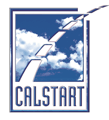Driving to Zero in the Northeastern US and Eastern Canada
By Ben Mandel, Northeast Regional Director, CALSTART
September 20, 2019
As a New Yorker and Director of CALSTART’s Northeast office, I believe our corner of the world can play a prominent role in a coordinated international effort to make medium- and heavy-duty vehicles cleaner, more efficient and technologically advanced.
On Tuesday, September 24th CALSTART will host industry and government leaders for a Climate Week NYC workshop of our Global Commercial Vehicle Drive to Zero (Drive to Zero) program. Drive to Zero enables and accelerates the growth of zero-emission commercial vehicles, by aligning government and industry in major automotive markets, targeting first-success markets where electrification works today, and building supporting “ecosystems” of aligned policies, incentives and infrastructure. Ultimately Drive to Zero aims to make zero-emission technology commercially viable in specific vehicle applications – like transit bus, school bus, or urban delivery truck – by 2025, so that it dominates their segments by 2040. Through our event, we hope to foster agreement around the role that governments and fleets in the Northeastern US and Eastern Canada can play in laying the groundwork for a strategic blueprint to catalyze the zero- and near-zero-emission medium- and heavy-duty vehicle sector.
We ask our workshop participants and others who share our vision for a cleaner, more advanced transportation sector consider the following action items:
- Sign the Drive to Zero pledge. Signal your alignment with the Drive to Zero objective of sales dominance for zero-emission trucks and buses across key global markets by 2040. Commit to engaging with CALSTART, our international partners, and fellow pledge partners to create robust ecosystems that can effectuate this outcome.
- Establish clean truck and bus technology ecosystems in the Northeast. Whether via carrots (e.g., purchase incentives, tax breaks, green loading zones) or sticks (e.g., congestion pricing w/ tech-differentiated pricing, anti-idling enforcement), cities and states have powerful levers at their disposal to signal to manufacturers that Northeast policy leaders are serious about reducing diesel pollution.
- Lead by example with public fleets; set medium-range GHG reduction goals for state and municipal fleets, make zero-emission bus commitments that include a deadline for new diesel bus purchases
- Develop clean truck and bus incentive programs for fleets to speed deployments of zero- and near-zero emission commercial vehicles
- Commit VW Appendix D funds to predictable, long-term funding programs that prioritize beachhead technology segments (learn more about beachhead technologies here)
- Explore policies that encourage cleaner truck and bus procurement, like exclusion zones, low-emission zones, and congestion pricing in which clean vehicles face a lower charge
- Secure early wins for zero-emission technology. Commercial vehicle fleets require adequate and affordable infrastructure. Active involvement of electric utilities is a critical element both for supporting early adopters and allowing them to scale up investments in all-electric technology.
- Work with utilities and state regulators to develop programs that allow a rate-of-return on “make-ready” investments in commercial vehicle fleet charging depots
- Investigate options for commercial vehicle fleets to leverage EV rates that reward them for avoiding system peaks
- Coordinate with other Northeast states, provinces, and cities to grow the pie. Working together to develop a shared framework in pursuit of Drive to Zero Pledge outcomes—with corresponding benefits for diesel emissions reduction and the formation of a clean vehicle economy—will allow the Northeast to realize its potential as the next big market for advanced truck and bus technology.
- Working through the Transportation and Climate Initiative, put in place a shared set of principles to guide investment of cap-and-invest proceeds across participating states
- Pursue creation of regional low-carbon fuel standard (LCFS) to complement cap-and-invest system to help zero- and near-zero emission technologies better compete with petroleum products
There are a number of examples of public and private efforts to cut emissions in medium- and heavy-duty fleets we can already point to in our region:
- The Port Authority of New York and New Jersey is now operating a fleet of 18 all-electric buses by Proterra at John F. Kennedy International Airport, Newark Liberty and LaGuardia. The fleet will soon total 36, plus new charging stations at each airport.
- The Southeastern Pennsylvania Transportation Authority (SEPTA) is operating 25 battery-electric buses, manufactured by Proterra and funded in part by a $2.6 million Federal Transit Administration grant.
- New York’s Metropolitan Transit Authority (MTA) has been running 10 battery-electric buses (5 each from Proterra and New Flyer) for more than a year with plans to electrify its entire transit bus fleet by 2040.
- The Massachusetts Bay Transportation Authority (MBTA) recently acquired five zero-emission New Flyer battery-electric buses.
- New York is one of five major cities where Ikea has vowed to make all deliveries zero-emissions by the end of2020.
- DHL boasts more than 20 all-electric cargo vans in New York.
Together, we can mitigate the impact of transportation-related pollution and climate emissions and the Northeastern US and Eastern Canada can play a pivotal role in our collective efforts.
Ben Mandel works with private and public fleets to integrate cleaner, more efficient vehicle technologies. Ben leads CALSTART’s work on market acceleration and policy development in the Northeast, including administration of workplace electric vehicle charging and truck voucher incentive programs. Ben also works with regional partners on multi-state, market-driven policy solutions to reduce transportation emissions and elevate advanced technologies.

